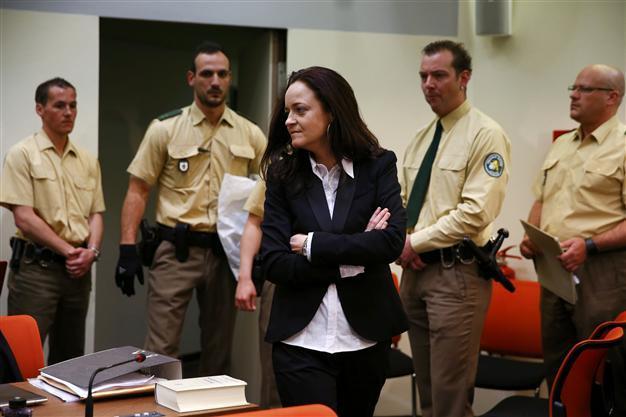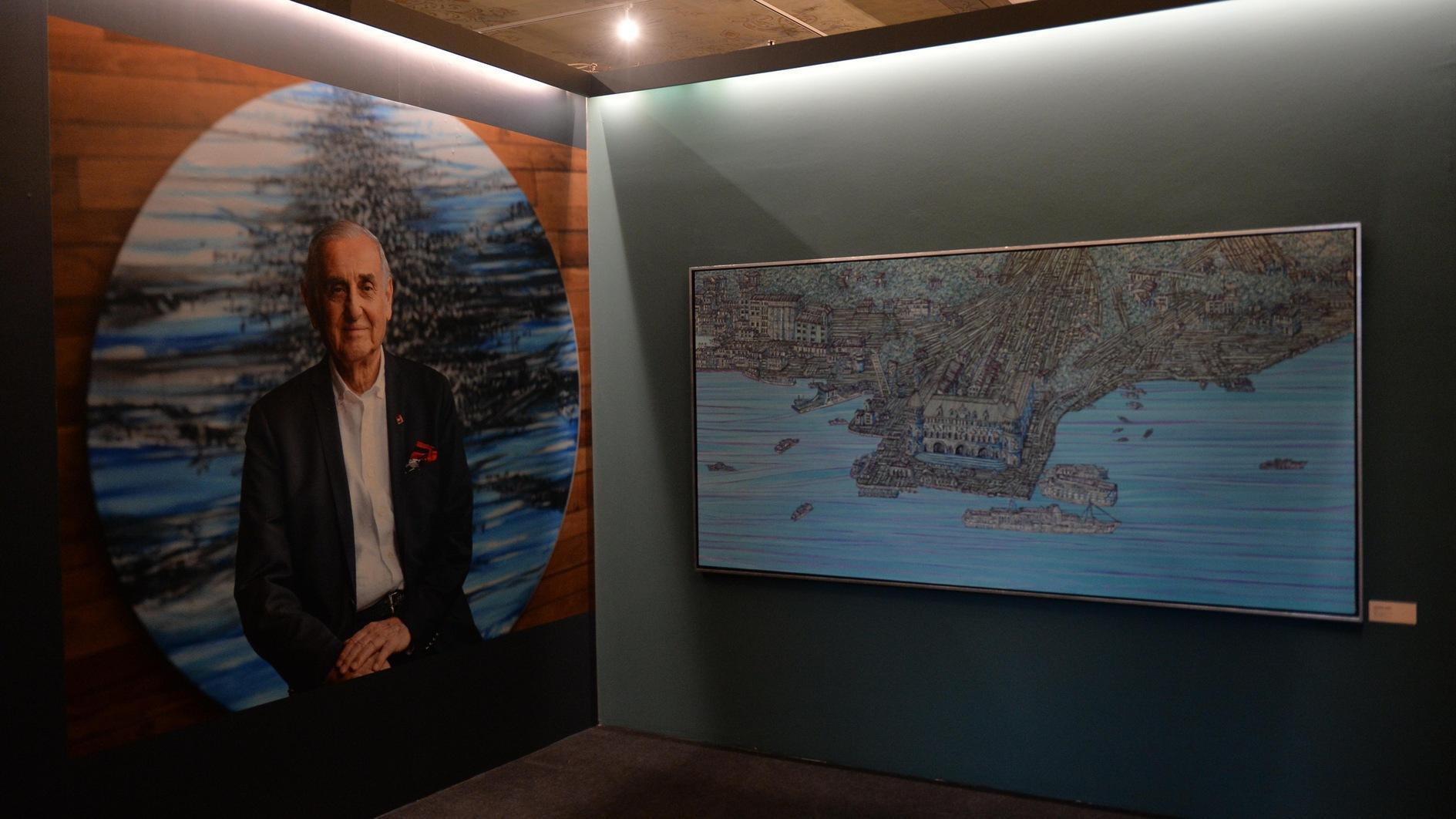NSU trial a litmus test for German stance on Neo-nazi groups: Turkish EU Minister
ANKARA - Hürriyet Daily News

Beate Zschaepe, the surviving member of the neo-Nazi group National Socialist Underground (NSU) stands in the court before the start of her trial in Munich May 6. REUTERS photo
While the immensely controversial case of the National Socialist Underground (NSU) is proceeding, EU Minister Egemen Bağış has indicated that this case could be used to exculpate the neo-Nazi image haunting Germany.“I am hoping that through this case, our German allies can erase the negative image created about their country,” Bağış told reporters during a meeting with Slovakian Ambassador to Ankara Milan Zachar on May 8.
Bağış noted that the government has been closely monitoring the case, and denounced the attitude of suspect Beata Zschaepe, a founding member of the NSU during the court hearings.
“Because in this case, especially the attitude, behaviors, body language of the suspect are really irritating. The impression that she is taking power from somewhere, and is being spoilt by someone is very widespread in the Turkish public opinion,” Bağış stated.
Bağış recalled that he discussed this matter last week with Maria Böhmer, Germany’s federal commissioner for migration, refugees and integration.
“We have 3.5 million brothers in Germany. A majority of these are now citizens of Germany, the electorate of Germany, the tax payers and individuals contributing to the development of Germany. So caring about the sensitivity of our friends is not only important for the Turkish-German relationship, but also for their internal politics,” he added, underlining the possible internal repercussions of the neo-Nazi case.
'Ergenekon of Germany'
Deputy Prime Minister Bekir Bozdağ buttressed this stance, saying the case could send a clear message about racism, discrimination and marginalization.
“If the court does not fulfill its duty of justice, if different decisions come up, then racists, discriminators, neo-Nazi terrorists, other terrorist groups, by gaining power from this decision of the court, may be highly encouraged to commit other murders. Therefore the decision of the court will deliver a message for discriminatory, racist terrorist organizations like NSU,” Bozdağ said in an interview with Ülke TV news channel on May 8.
Bozdağ also noted that news reports conceptualized the case as the “Ergenekon of Germany” and he urged for an investigation into possible ties of the organization with the public. Ergenekon is a clandestine criminal organization that plotted to overthrow the current government of Turkey.
The court hearings commenced in Munich on May 6, after a three-week delay due to the controversy over media accreditation, when the court initially failed to guarantee seats to the Turkish media and was later on instructed to rectify the decision by the country’s top court.
The NSU had claimed responsibility for the murders of eight Turks, a Greek shopkeeper and a German policewoman, carried out between 2000 and 2007.
















